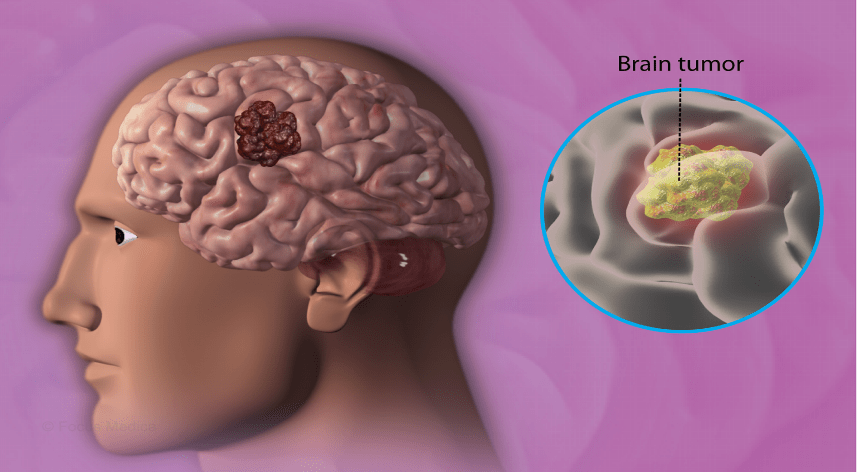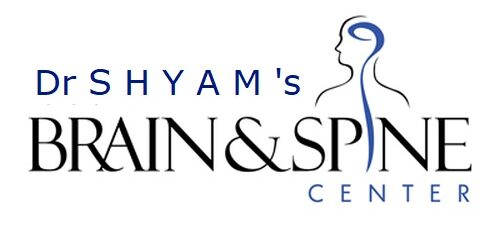Published: May 23, 2025
A brain cancer diagnosis can be overwhelming, but advancements in medical technology and expertise in India offer hope and effective treatment options. In 2025, India is a global hub for brain cancer treatment, combining world-class care, cutting-edge technology, and affordability. Whether you’re seeking surgery, radiation, or immunotherapy, this guide explores the landscape of brain cancer treatment in India, including treatment options, costs, top hospitals, and practical steps to access care. With over 40,000–50,000 brain tumor cases diagnosed annually in India, understanding your options is crucial for timely and effective treatment. This blog provides detailed insights, a patient story, and answers to common questions to empower you or your loved ones on this journey.

Understanding Brain Cancer
Brain cancer refers to malignant tumors that originate in the brain (primary brain tumors) or spread from other parts of the body (secondary or metastatic brain tumors). These tumors can disrupt brain function, causing symptoms like headaches, seizures, or cognitive changes. In India, approximately 20% of brain tumor cases occur in children, and the survival rate for malignant brain tumors is around 34.4% without early intervention.
Types of Brain Tumors
- Primary Brain Tumors: Originate in brain tissue, including:
- Gliomas: Most common, including glioblastomas (grade IV, highly aggressive).
- Meningiomas: Often benign, more common in women aged 40–70.
- Pituitary Adenomas: Affect hormone regulation.
- Medulloblastomas: Common in children.
- Secondary Brain Tumors: Spread from cancers like lung, breast, or kidney, affecting the brain via the bloodstream.
Common Symptoms
- Persistent headaches, worse in the morning.
- Seizures or sudden fainting spells.
- Nausea, vomiting, or dizziness.
- Cognitive issues (memory loss, confusion).
- Motor problems (weakness, coordination issues).
- Sensory changes (vision or hearing loss).
Why Early Diagnosis Matters
Early detection significantly improves outcomes. In 2025, India’s advanced diagnostics, like MRI and CT scans, enable precise tumor identification, guiding effective treatment plans.
Brain Cancer Treatment Options in India
India offers a range of advanced treatments tailored to the tumor’s type, size, location, and patient’s health. Here’s an overview of the primary modalities:
1. Surgery
- Purpose: Remove as much of the tumor as possible while preserving healthy brain tissue.
- Techniques:
- Craniotomy: Opens the skull to access the tumor (₹2,00,000–₹8,00,000).
- Awake Craniotomy: Performed with the patient awake to monitor speech or motor functions, ideal for tumors in eloquent brain areas (₹3,00,000–₹10,00,000).
- Neuroendoscopy: Minimally invasive, using small holes for tumor removal (₹2,50,000–₹7,00,000).
- Success Rate: 70–90% for accessible tumors, depending on the patient’s condition.
- Recovery: 2–6 weeks for minimally invasive procedures; 6–12 weeks for open surgery.
2. Radiation Therapy
- Purpose: Uses high-energy beams (X-rays, protons) to destroy cancer cells post-surgery or when surgery isn’t feasible.
- Types:
- External Beam Radiation: Targets the tumor site (₹1,00,000–₹2,50,000 per course).
- Stereotactic Radiosurgery (SRS): High-dose radiation (e.g., Gamma Knife, CyberKnife) for precise tumor targeting, not true surgery (₹2,00,000–₹5,00,000).
- Proton Beam Therapy: Precise, minimizes damage to healthy tissue, ideal for sensitive areas (₹3,00,000–₹8,00,000).
- Use Case: Often used for residual cancer cells or inoperable tumors.
- Side Effects: Fatigue, hair loss, mild cognitive changes.
3. Chemotherapy
- Purpose: Uses drugs like temozolomide to kill cancer cells or slow growth.
- Administration: Oral pills, injections, or wafers placed during surgery (₹1,00,000–₹2,50,000 per cycle, multiple cycles may be needed).
- Common Drugs: Temozolomide for gliomas, used post-surgery to prevent recurrence.
- Side Effects: Nausea, fatigue, low blood counts.
- Use Case: Combined with radiation for malignant tumors like glioblastoma.
4. Immunotherapy
- Purpose: Stimulates the immune system to attack cancer cells.
- Mechanism: Drugs or dendritic cell therapies (e.g., Denvax) target tumor-specific markers.
- Cost: ₹3,00,000–₹10,00,000, depending on sessions.
- Use Case: Effective for glioblastoma multiforme (GBM) and metastatic tumors.
- Advancements in 2025: India’s adoption of personalized immunotherapy improves outcomes for aggressive cancers.
5. Targeted Therapy
- Purpose: Uses drugs to block specific abnormalities in cancer cells.
- Examples: Drugs targeting genetic mutations in tumor cells (₹2,00,000–₹6,00,000).
- Use Case: For tumors with specific molecular markers, reducing damage to healthy cells.
- Side Effects: Less severe than chemotherapy, including rash or fatigue.
6. Tumor-Treating Fields (TTF)
- Purpose: Uses electric fields to disrupt cancer cell division.
- Device: Wearable device delivering low-intensity fields.
- Cost: ₹5,00,000–₹15,00,000 for a treatment course.
- Use Case: Emerging option for glioblastoma, often combined with chemotherapy.
7. Palliative Care
- Purpose: Manages symptoms and improves quality of life for advanced cases.
- Services: Pain management, psychological support, nutritional guidance.
- Cost: ₹10,000–₹50,000 monthly, depending on care level.
2025 Advancements
- Intraoperative MRI and Neuronavigation: Enhances surgical precision, reducing complications.
- AI-Enhanced Diagnostics: Improves tumor detection and treatment planning.
- Telehealth: Enables remote consultations with top specialists, increasing access for rural patients.
Cost of Brain Cancer Treatment in India
India is renowned for affordable, high-quality medical care, attracting international patients. Costs vary based on treatment type, tumor complexity, hospital, and location.
Breakdown of Costs
- Surgery: ₹1,50,000–₹10,00,000, depending on procedure (craniotomy, awake craniotomy, neuroendoscopy).
- Radiation Therapy: ₹1,00,000–₹8,00,000, with SRS or proton therapy being costlier.
- Chemotherapy: ₹1,00,000–₹2,50,000 per cycle, often requiring 4–6 cycles.
- Immunotherapy/Targeted Therapy: ₹2,00,000–₹15,00,000, based on sessions and drugs.
- Diagnostics: MRI/CT (₹3,000–₹15,000), biopsy (₹10,000–₹50,000).
- Hospital Stay: ₹5,000–₹20,000 per day, typically 5–10 days for surgery.
- Total Estimate: ₹2,00,000–₹25,00,000 for comprehensive treatment, 50–70% lower than in the US or UK.
Factors Affecting Costs
- Tumor Type and Stage: Larger or malignant tumors require extensive treatment.
- Location: Metro cities (Delhi, Mumbai, Bangalore) have higher costs than smaller cities.
- Hospital Type: Private hospitals charge more than government facilities.
- Surgeon Expertise: Experienced neurosurgeons command higher fees.
Insurance and Financial Aid
- Ayushman Bharat: Covers eligible patients for up to ₹5,00,000 in public hospitals.
- Private Insurance: Policies like Star Health or ICICI Lombard often cover cancer treatments.
- NGOs: Organizations like Indian Cancer Society offer financial support for low-income patients.
Top Hospitals for Brain Cancer Treatment in India
India’s healthcare infrastructure includes world-class hospitals with NABH and JCI accreditation. Here are some leading centers in 2025:
1. Max Super Speciality Hospital, Delhi
- Specialties: Awake craniotomy, Gamma Knife, immunotherapy.
- Notable Experts: Dr. Pramod Kumar Julka (oncology), Dr. Arun Saroha (neurosurgery).
- Cost: Surgery (₹2,50,000–₹8,00,000), radiation (₹1,50,000–₹5,00,000).
- Why Choose: Advanced intraoperative MRI, multidisciplinary team.
2. Apollo Hospitals, Chennai
- Specialties: Neuroendoscopy, proton therapy, chemotherapy.
- Notable Experts: Top oncologists and neurosurgeons with international training.
- Cost: Surgery (₹2,00,000–₹7,00,000), immunotherapy (₹3,00,000–₹10,00,000).
- Why Choose: JCI-accredited, comprehensive cancer care.
3. Fortis Hospitals, Bangalore
- Specialties: Minimally invasive surgery, CyberKnife, targeted therapy.
- Notable Experts: Dr. Rana Patir (neurosurgery).
- Cost: Surgery (₹2,50,000–₹9,00,000), radiation (₹1,00,000–₹4,00,000).
- Why Choose: Intraoperative navigation, high success rates.
4. Medanta – The Medicity, Gurugram
- Specialties: Intraoperative MRI, personalized immunotherapy.
- Notable Experts: Leading neurosurgeons and neuro-oncologists.
- Cost: Surgery (₹3,00,000–₹10,00,000), chemotherapy (₹1,50,000–₹3,00,000).
- Why Choose: State-of-the-art facilities, international patient services.
5. Kokilaben Dhirubhai Ambani Hospital, Mumbai
- Specialties: Stereotactic radiosurgery, advanced diagnostics.
- Notable Experts: Renowned for complex tumor surgeries.
- Cost: Surgery (₹2,50,000–₹8,50,000), SRS (₹2,00,000–₹5,00,000).
- Why Choose: Cutting-edge technology, patient-centric care.
6. Nanavati Max Hospital, Mumbai
- Specialties: Gamma Knife, comprehensive cancer care.
- Notable Experts: Experienced neuro-oncologists.
- Cost: Treatment (₹4,00,000–₹5,50,000).
- Why Choose: Expertise in both benign and malignant tumors.
A Patient’s Story: Arjun’s Journey to Recovery
Arjun (name changed), a 45-year-old teacher, experienced persistent headaches and seizures in late 2024. Initially dismissing them as stress, he visited a general practitioner who recommended an MRI (₹10,000). Diagnosed with a grade II glioma, Arjun was referred to a neurosurgeon at Fortis Hospitals, Bangalore. The team performed an awake craniotomy (₹6,00,000) to remove the tumor, followed by radiation therapy (₹2,00,000) and temozolomide chemotherapy (₹1,50,000 for three cycles). Supported by his insurance and the hospital’s counseling services, Arjun recovered over three months and returned to teaching. His story underscores the importance of early diagnosis and India’s advanced treatment capabilities in 2025.
Why Choose India for Brain Cancer Treatment?
India stands out as a premier destination for brain cancer treatment in 2025 due to:
- Affordability: Costs are 50–70% lower than in the US, UK, or Singapore.
- Expertise: Surgeons like Dr. Arun Saroha, Dr. Rana Patir, and Dr. Vijay Anand Reddy have decades of experience.
- Technology: Hospitals use intraoperative MRI, Gamma Knife, and AI-driven diagnostics.
- Accessibility: Telehealth and medical tourism services (e.g., WDI Medical Tourism) simplify care for international patients.
- Holistic Care: Multidisciplinary teams ensure comprehensive treatment, from diagnosis to rehabilitation.
How to Access Brain Cancer Treatment in India
Follow these steps to start your treatment journey:
1. Consult a General Practitioner
- Begin with a GP to assess symptoms and order initial tests (₹200–₹500).
- Request a referral to a neurologist or oncologist.
2. Get a Diagnosis
- Tests: MRI/CT (₹3,000–₹15,000), biopsy (₹10,000–₹50,000).
- Specialists: Consult a neurosurgeon or neuro-oncologist for tumor evaluation.
3. Choose a Hospital
- Select NABH/JCI-accredited hospitals like Max, Apollo, or Fortis.
- Verify surgeon credentials and hospital facilities.
4. Explore Financial Options
- Check insurance coverage (Ayushman Bharat, private plans).
- Contact NGOs or hospital financial counselors for aid.
5. Plan Your Stay
- Hospital Stay: 5–10 days for surgery, longer for combined treatments.
- Accommodation: Guest houses near hospitals cost ₹2,000–₹4,000/day.
- International Patients: Medical tourism agencies arrange visas, travel, and post-operative care.
6. Follow-Up Care
- Regular MRIs and consultations to monitor recurrence (₹5,000–₹20,000 per visit).
- Rehabilitation (physical therapy, counseling) costs ₹10,000–₹50,000 monthly.
Risks and Side Effects
Brain cancer treatments carry risks, including:
- Surgery: Infection, bleeding, neurological deficits (5–10% risk).
- Radiation: Cognitive decline, fatigue (10–20% of patients).
- Chemotherapy: Nausea, low immunity (20–30% experience severe side effects).
- Immunotherapy: Immune-related reactions (5–15% risk).
Discuss risks with your doctor and seek a second opinion if needed. India’s top hospitals offer multidisciplinary clinics to minimize complications.
Yes, with advanced treatments like surgery, radiation, and immunotherapy, many patients achieve remission or improved quality of life. Success depends on tumor type and stage.
Costs range from ₹2,00,000–₹25,00,000, covering surgery, radiation, chemotherapy, and immunotherapy, significantly lower than Western countries.
Primary brain cancer rarely spreads outside the brain or spinal cord, but metastatic tumors can originate from other organs.
Recovery takes 2–6 weeks for minimally invasive surgery and 6–12 weeks for open surgery, depending on the patient’s health.
Take the Next Step
A brain cancer diagnosis is challenging, but India’s advanced healthcare system offers hope through affordable, high-quality treatments in 2025. Whether you need surgery, radiation, or immunotherapy, top hospitals like Max, Apollo, and Fortis provide world-class care. Start by consulting a general practitioner or booking an appointment with a neurosurgeon via platforms like Practo or Apollo 24|7. For international patients, medical tourism services can streamline your journey. Take charge of your health today and explore India’s expertise in brain cancer treatment.
